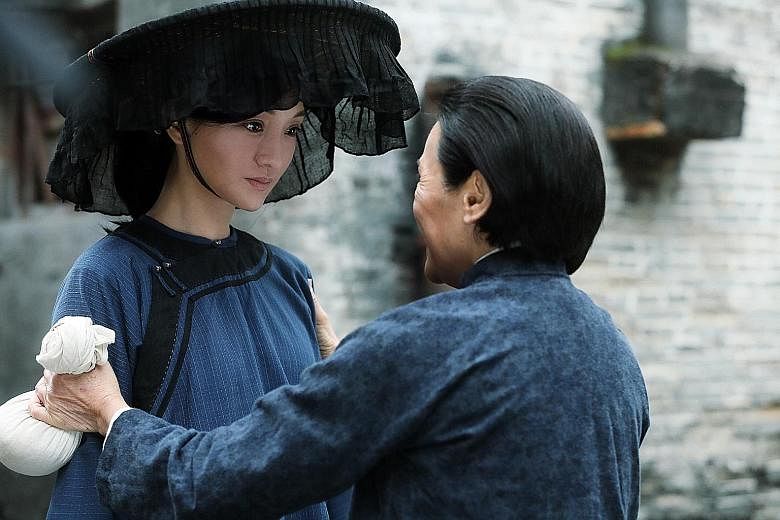REVIEW / HISTORICAL DRAMA
OUR TIME WILL COME (PG13)
130 minutes/Opens tomorrow/3/5 stars
The story: It is World War II and Japanese forces have taken control of Hong Kong, turning it into a barren land with little food and water. Among the local residents trying to get on with their lives is schoolteacher Fang Lan (Zhou Xun), who is enlisted by guerilla fighter Blackie (Eddie Peng) to help escort a group of intellectuals to safety.
This is a wartime movie with very little blood.
Typical of the style of director Ann Hui - the Hong Kong film- maker known for muted, social realist works such as Boat People (1982) - she chooses not to focus on grand action set pieces here, instead portraying how regular folk navigate a crumbling city.
Despite all that is happening around them, life goes on.
Couples are depicted holding wedding banquets, albeit without the lavish traditional Chinese customs, which greatly upsets one bride here, and residents go to the market or visit friends.
Much of the violence takes place off-screen, either implied or talked about in conversation.
The one scene where there is a mass shooting, helmed by bold sharpshooter Blackie, is done with such quiet efficiency that it serves only to highlight his playful charm.
The star of the show is Fang Lan, a little-known Hong Kong heroine who helped celebrated author Mao Dun (Guo Tao) and other persecuted writers to escape from Hong Kong on boats.
Again, Hui wastes no time in depicting the obvious dangers of that mission - the whole thing plays out quickly and with little suspense.
But before Fang and Mao even set out on the road, there is an extended scene in which she gives an impassioned recitation of one of his writings. Perhaps it is her way of illustrating the importance of preserving the cultural legacy of intellectuals such as him.
However, the film feels strangely aloof throughout.
Unlike Hui's earlier films, such as A Simple Life (2011) - a quiet yet incredibly affecting portrait of the relationship between a man and his former caregiver - this one has plenty of heart, but no soul.


